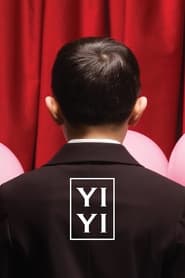The film’s brilliance emanates equally from its structure (the story is delicately bookended by two cultural rituals: a wedding and a funeral), the acuteness of its gaze, and Yang’s acknowledgement of life as a series of alternately humdrum and catastrophic occurrences.
— Ed Gonzalez (Slant)
Many filmmakers, confronted with the immensely difficult task of justly rendering urban existence, get people and place all mixed up, to the point where they become one monolithically alienating entity. Not so Yang, who [is] a great city filmmaker [who has] thought carefully about what it’s like to live in a city, how it affects your sense of space and time, your consciousness. [Indeed,] the majority of Yang’s films are poetically acute, pocket-size “city symphonies,” separately and together comprising one of the brightest features of modern cinema. And Yi Yi may be the most exquisitely refined of them all.
— Kent Jones (Criterion)
In [the] final half hour, Yi Yi delivers a tiny flourish of magical realism that opens the emotional floodgates. (I won’t spoil it.) Whether we read this as a dream, a premonition, or a visitation, the result is the same. In that moment, Yang is pointing his camera at a dimension we normally can’t see, to help us better understand the one in which we live.
— Josh Larsen (Larsen on Film)
After the doctors have done what they can for her, the old woman is transferred home, where her family waits for her to awaken. It will help, the doctors tell them, if they talk to her. And as each takes a daily turn talking to this woman who can't respond, it's as if they hear themselves for the first time. […] One of the reasons that Yi Yi is so refreshing is that it doesn't subscribe to the lie that dysfunction is the norm. Movies need some conflict to get our attention, but sometimes at the movies I get the feeling that the people who've made them think that the more screwed-up the characters, the truer they are. The characters in Yi Yi are average people at a crossroads who are suddenly face to face with the ways in which their lives have let them down. […] Most of the crises that force us to face where our lives have led us are things that nearly everyone goes through — a parent's illness, a job that seems like a dead end, a day-to-day routine that suddenly seems purposeless.
— Charles Taylor (Salon)

